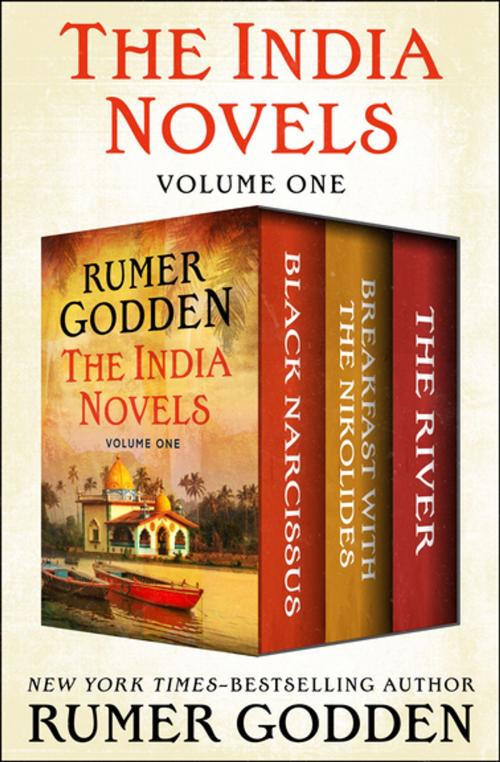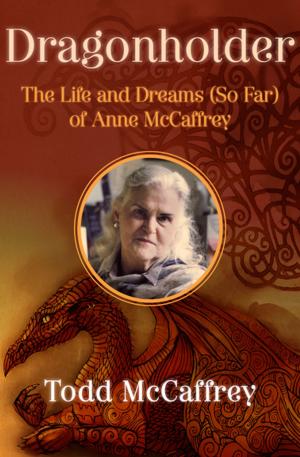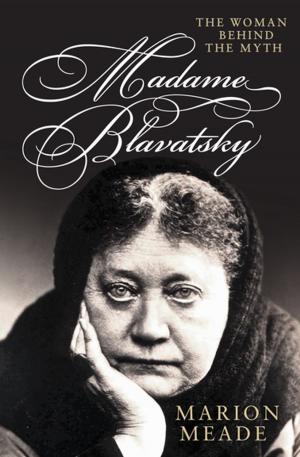The India Novels Volume One
Black Narcissus, Breakfast with the Nikolides, and The River
Fiction & Literature, Contemporary Women, Classics, Literary| Author: | Rumer Godden | ISBN: | 9781504054508 |
| Publisher: | Open Road Media | Publication: | June 19, 2018 |
| Imprint: | Open Road Media | Language: | English |
| Author: | Rumer Godden |
| ISBN: | 9781504054508 |
| Publisher: | Open Road Media |
| Publication: | June 19, 2018 |
| Imprint: | Open Road Media |
| Language: | English |
Three unforgettable novels from a New York Times–bestselling author—including Black Narcissus, which “bears comparison with A Passage to India” (Arthur Koestler).
With Black Narcissus, her novel of five nuns in a remote Himalayan convent struggling against nature—both physical and human—Rumer Godden established her impeccable literary reputation. The**New York Times wrote of her work: “Her craftsmanship is always sure; her understanding of character is compassionate and profound; her prose is pure, delicate, and gently witty.” Having spent her formative years in colonial India, she would continue to return to that setting for inspiration in several subsequent novels, each of them “beautifully and simply wrought by a woman of depth and sensitivity” (Los Angeles Times).
Black Narcissus: Led by Sister Clodagh, the youngest Mother Superior in the history of their order, the European Sisters of the Servants of Mary take up residence in an abandoned palace in the foothills of the Himalayas, where an Indian general once housed his harem. The sisters hope to establish a school and clinic to combat superstition, ignorance, and disease. But the isolation and mountain altitude, the ghosts and lurid history, and one young nun’s unhealthy obsession with their royal benefactor’s agent, Mr. Dean, threaten to undermine the best intentions of the purest hearts. Black Narcissus was made into an Academy Award–winning film starring Deborah Kerr and directed by Michael Powell.
“A very remarkable novel.” —The Observer
Breakfast with the Nikolides: As the Nazi juggernaut rolls through occupied France, Louise Poole is forced to flee Paris with her two daughters and return to East Bengal and the husband she left. Despite Louise’s hatred of rural India, eleven-year-old Emily is intrigued by her exotic new home, left free to explore—and enjoy the hospitality of her glamorous neighbors, the Nikolides. But as the cracks in her parents’ marriage become more obvious, an act of thoughtless cruelty ultimately shatters the tenuous bonds of family, violently disrupting the lives of the Pooles and the community.
“A fascinating book . . . It is absorbing and as original . . . as Black Narcissus.” —Kirkus Reviews
The River: The Second World War seems very far away for eleven-year-old Harriet, the daughter of a British businessman, and her home in Bengal, India, along the Ganges River—until the arrival of a handsome wounded soldier. Harriet is entranced by their new neighbor, Captain John, but unprepared for the rush of unfamiliar emotions he stirs up in her: longing, jealousy, and infatuation. Inspired by the author’s personal experiences growing up in India, The River is an evocative and bittersweet coming of age story. The River was made into a film directed by Jean Renoir.
“So intense, so quietly demanding of attention, that at the time there will be nothing in your thoughts but a small girl in India, and the people and places that were her world.” —Saturday Review
Three unforgettable novels from a New York Times–bestselling author—including Black Narcissus, which “bears comparison with A Passage to India” (Arthur Koestler).
With Black Narcissus, her novel of five nuns in a remote Himalayan convent struggling against nature—both physical and human—Rumer Godden established her impeccable literary reputation. The**New York Times wrote of her work: “Her craftsmanship is always sure; her understanding of character is compassionate and profound; her prose is pure, delicate, and gently witty.” Having spent her formative years in colonial India, she would continue to return to that setting for inspiration in several subsequent novels, each of them “beautifully and simply wrought by a woman of depth and sensitivity” (Los Angeles Times).
Black Narcissus: Led by Sister Clodagh, the youngest Mother Superior in the history of their order, the European Sisters of the Servants of Mary take up residence in an abandoned palace in the foothills of the Himalayas, where an Indian general once housed his harem. The sisters hope to establish a school and clinic to combat superstition, ignorance, and disease. But the isolation and mountain altitude, the ghosts and lurid history, and one young nun’s unhealthy obsession with their royal benefactor’s agent, Mr. Dean, threaten to undermine the best intentions of the purest hearts. Black Narcissus was made into an Academy Award–winning film starring Deborah Kerr and directed by Michael Powell.
“A very remarkable novel.” —The Observer
Breakfast with the Nikolides: As the Nazi juggernaut rolls through occupied France, Louise Poole is forced to flee Paris with her two daughters and return to East Bengal and the husband she left. Despite Louise’s hatred of rural India, eleven-year-old Emily is intrigued by her exotic new home, left free to explore—and enjoy the hospitality of her glamorous neighbors, the Nikolides. But as the cracks in her parents’ marriage become more obvious, an act of thoughtless cruelty ultimately shatters the tenuous bonds of family, violently disrupting the lives of the Pooles and the community.
“A fascinating book . . . It is absorbing and as original . . . as Black Narcissus.” —Kirkus Reviews
The River: The Second World War seems very far away for eleven-year-old Harriet, the daughter of a British businessman, and her home in Bengal, India, along the Ganges River—until the arrival of a handsome wounded soldier. Harriet is entranced by their new neighbor, Captain John, but unprepared for the rush of unfamiliar emotions he stirs up in her: longing, jealousy, and infatuation. Inspired by the author’s personal experiences growing up in India, The River is an evocative and bittersweet coming of age story. The River was made into a film directed by Jean Renoir.
“So intense, so quietly demanding of attention, that at the time there will be nothing in your thoughts but a small girl in India, and the people and places that were her world.” —Saturday Review















